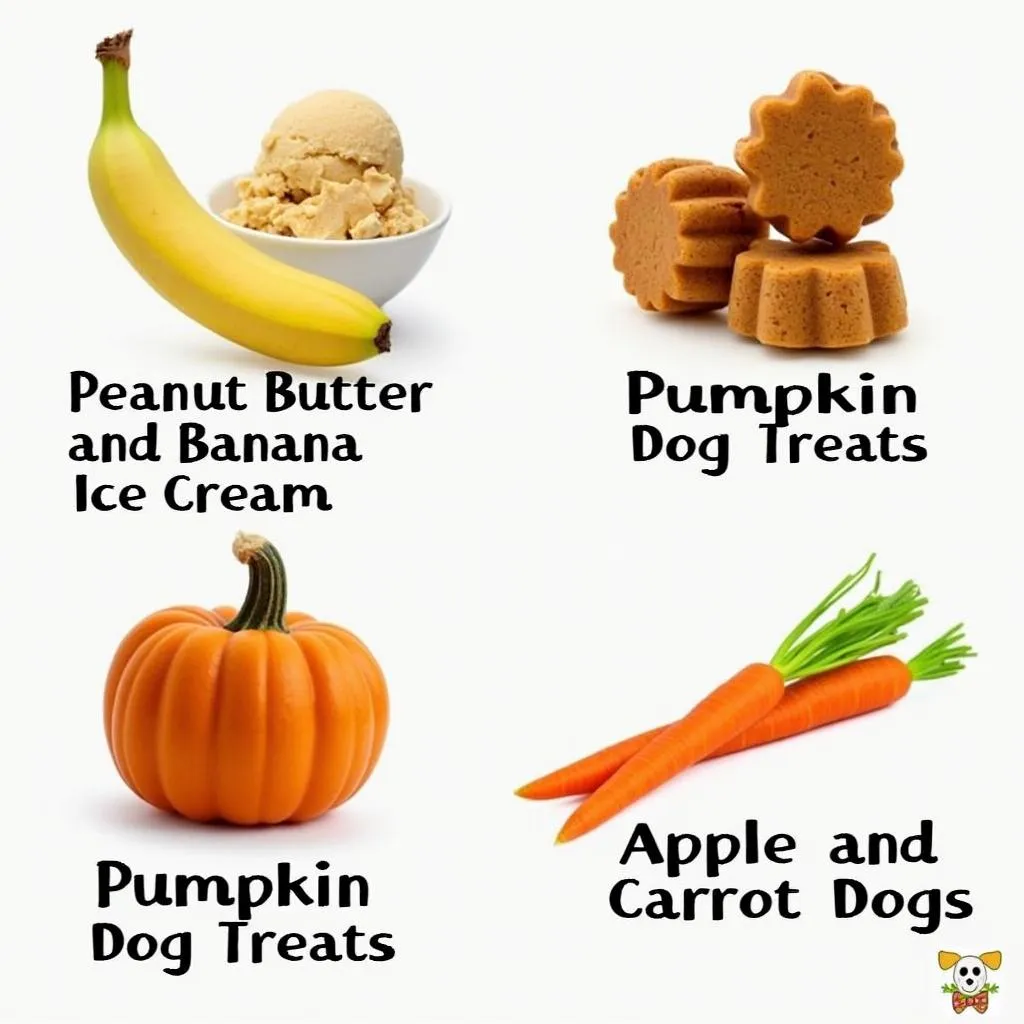“A dog’s love is unconditional, but that doesn’t mean they can enjoy everything we do.” – This old Vietnamese proverb perfectly captures the essence of responsible pet ownership. As devoted pet parents, we often want to share our treats with our furry companions, but it’s crucial to be mindful of what’s safe for them. One treat that frequently sparks curiosity is hot chocolate. So, let’s delve into the world of dog hot chocolate and explore its safety for our canine companions.
Can Dogs Have Hot Chocolate?
The simple answer is no, dogs should not have hot chocolate. It’s not just a matter of them enjoying a sweet treat – it’s a question of their safety and well-being. Here’s why:
The Ingredients that Pose Problems:
-
Chocolate: Chocolate contains theobromine, a compound that dogs cannot metabolize efficiently. Theobromine can cause various health issues in dogs, ranging from vomiting and diarrhea to more serious complications like seizures and heart problems. The darker the chocolate, the higher the concentration of theobromine, making dark chocolate the most dangerous for dogs.
-
Milk: While some dogs can tolerate milk, many are lactose intolerant. Consuming milk can lead to digestive upset, including diarrhea, gas, and bloating.
-
Sugar: Excessive sugar intake can contribute to obesity, dental problems, and other health concerns in dogs.
The Risks of Hot Chocolate for Dogs:
-
Toxicity: Theobromine poisoning is a real concern for dogs consuming hot chocolate. The symptoms can appear within a few hours of ingestion and may include:
- Vomiting
- Diarrhea
- Increased thirst
- Restlessness
- Hyperactivity
- Tremors
- Seizures
-
Digestive Issues: The combination of chocolate, milk, and sugar can be quite a digestive shock to a dog’s system. It can cause vomiting, diarrhea, and abdominal pain.
-
Other Health Concerns: Chronic consumption of sugary treats like hot chocolate can contribute to weight gain, pancreatitis, dental issues, and even diabetes.
What Should You Do if Your Dog Eats Hot Chocolate?
- Call Your Vet: If you suspect your dog has consumed hot chocolate, contact your veterinarian immediately. They can assess the situation and advise you on the best course of action.
- Monitor Your Dog: Observe your dog closely for any signs of illness.
- Consider Activated Charcoal: Your vet may recommend activated charcoal to absorb the toxins in the dog’s stomach.
Safe Alternatives:
- Homemade Dog Treats: There are plenty of delicious and safe homemade treats you can prepare for your dog. Use ingredients like peanut butter (make sure it doesn’t contain xylitol), sweet potato, and banana.
- Commercial Dog Treats: Choose high-quality commercial dog treats that are free of artificial ingredients, sugar, and xylitol.
- Frozen Dog Treats: Frozen dog treats are a refreshing and healthy option for hot days. You can make your own by blending fruits and vegetables with yogurt or broth.
 Hot chocolate treats can be dangerous for dogs due to theobromine and sugar content.
Hot chocolate treats can be dangerous for dogs due to theobromine and sugar content.
Is it Okay to Give My Dog a Little Bit?
Some people argue that a tiny amount of hot chocolate won’t hurt a dog. However, it’s best to err on the side of caution. Even a small amount of chocolate can be dangerous for smaller dogs or dogs with pre-existing health conditions.
Can I Make Hot Chocolate for My Dog?
You might wonder if you can make a special hot chocolate for your dog that’s safe. While there are recipes circulating online for “dog hot chocolate,” it’s crucial to consult with your vet before attempting any homemade treats. They can advise you on safe ingredients and appropriate quantities.
Dog Hot Chocolate Alternatives:
If you want to share a sweet treat with your dog, here are some safe and delicious alternatives:
- Peanut Butter and Banana Ice Cream: Blend frozen bananas, peanut butter (xylitol-free), and a little bit of plain yogurt for a refreshing and healthy frozen treat.
- Pumpkin Dog Treats: Pumpkin is a great source of fiber and vitamins for dogs. You can make pumpkin dog treats using pure pumpkin puree, flour, and other safe ingredients.
- Apple and Carrot Dog Treats: Apples and carrots are naturally sweet and good for dogs. Make dog treats with these ingredients and your dog will be happy.
FAQs About Dog Hot Chocolate:
- What if my dog has eaten hot chocolate? Contact your vet immediately. The severity of symptoms depends on the amount consumed and the dog’s size.
- Is white chocolate safe for dogs? White chocolate contains less theobromine than dark chocolate, but it still contains some. It’s best to avoid giving white chocolate to dogs.
- Can I give my dog hot chocolate with milk? Milk can cause digestive issues for many dogs. It’s best to avoid giving hot chocolate with milk to your dog.
- Are there any dog-friendly hot chocolate recipes? While there are online recipes, it’s always best to consult with your vet before trying any new treats.
Remember:
- Safety First: Always prioritize your dog’s safety when choosing treats.
- Consult Your Vet: If you’re unsure about the safety of any treat, ask your veterinarian for guidance.
- Enjoy Quality Time: Spend time bonding with your furry friend through playful activities and walks rather than relying on treats to show your love.
 Safe dog treat alternatives
Safe dog treat alternatives
Conclusion:
Hot chocolate, while tempting, poses a significant risk to dogs. Theobromine, milk, and sugar can cause various health problems. It’s important to be mindful of the treats we share with our canine companions and choose safe alternatives that promote their well-being. Remember, a happy, healthy dog is a loving and playful companion.
Leave a Reply
You must be logged in to post a comment.